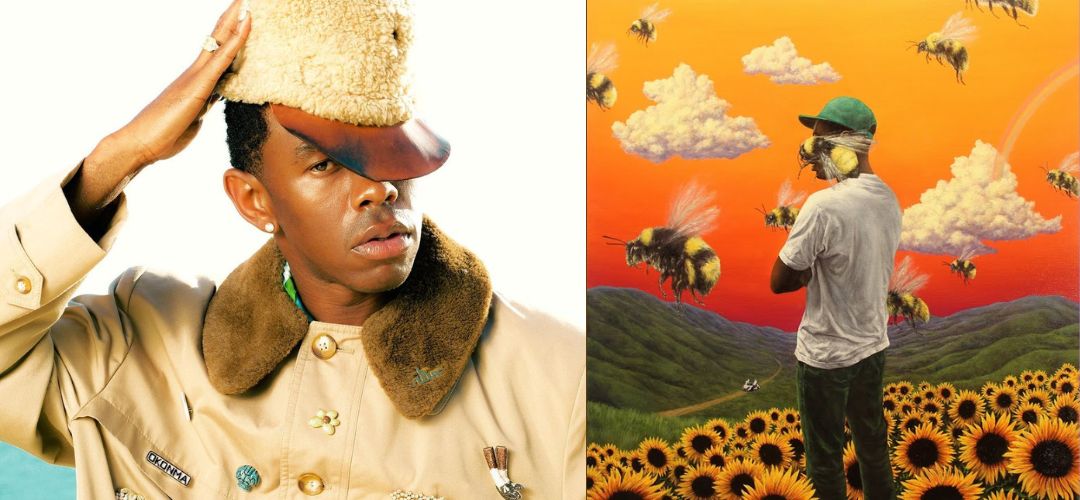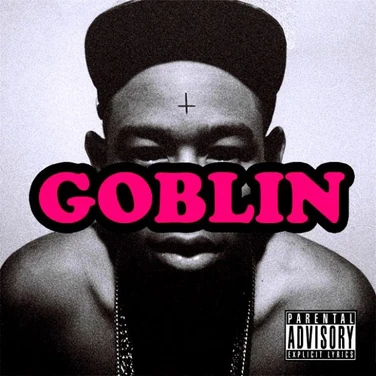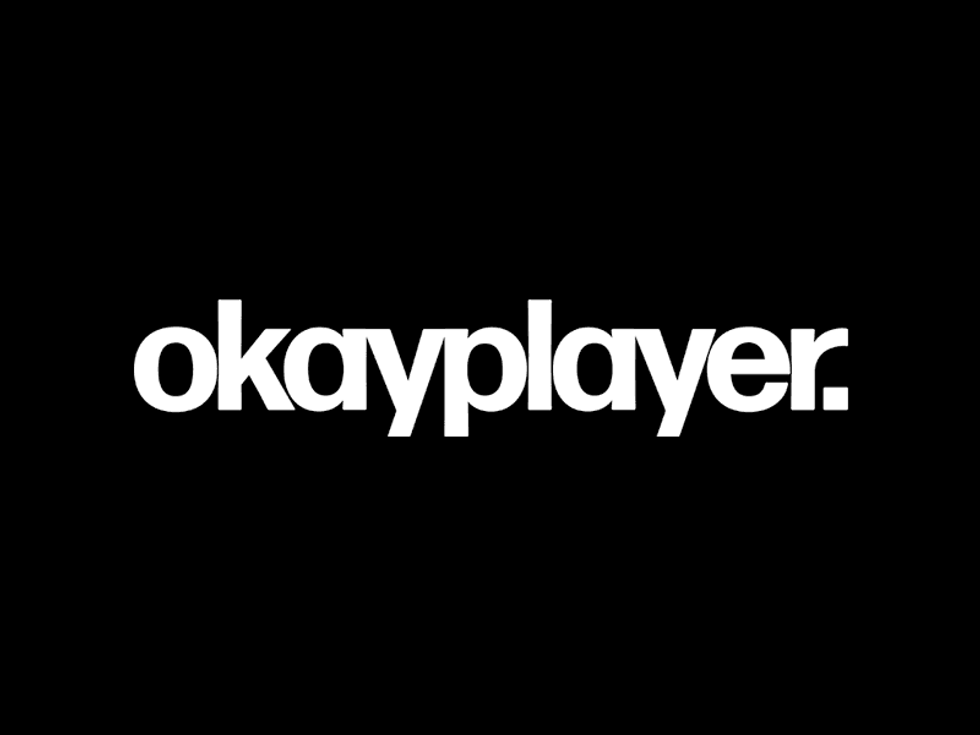When Tyler, The Creator’s fourth studio album Flower Boy was released in 2017, it was immediately placed in the album of the year discussions.
The album debuted at number two on the Billboard 200, stayed for ten weeks, and is now nominated for Rap Album of the Year for the 60th annual Grammys.
From the Eric White album cover to the meticulous chord arrangements, if you listened to Flower Boy you could hear and see there was intention that went behind every decision.
Or so you would think.
Flower Boy was able to sell and gain attention despite Tyler refusing to do interviews, which left the responsibility of interpretation solely on the listener. This is fine, but it also leaves room for the listener to be disengaged or miss certain nuances that make the project great.
Today, Tyler brings our attention back to Flower Boy, first giving a reason why he hadn’t given an interview by saying he’d do so himself.
https://twitter.com/tylerthecreator/status/955463361134608384
i rather do it myself ya know
— T (@tylerthecreator) January 22, 2018
Enlisting stand-up comedian and writer Jerrod Carmichael to perform the interview, it seems as if Tyler did just that: he set up his own interview.
Because Tyler hand picked who was giving him the interview (and also because he and Carmichael are close friends), as opposed to a radio interview, which could go in any direction, this felt more like an informative conversation.
This is the most relaxed and open Tyler has been in an interview and he actually reveals a lot. To save you some time, here are the five things I learned after the interview.
Tyler’s not depressed
A big misconception and takeaway many have had upon listen to Flower Boy is that Tyler is somehow sad or depressed. Grated, tacks like “Lonely” and “November” are incredibly moody, Tyler attests that it speaks to an emotion, not an overarching mood.
“For ‘Cherry Bomb’ I purposely was like, I don’t want to get personal at all. Like, I’m just going to make songs. And in this one I was like alright, let me write down every feeling.”
Pothole was inspired from by mom
According to Tyler, the song “Pothole” was based off words of wisdom his mom imparted on him.
She told me “some people just are not really as loyal or close to you as you think,” he remembers. “Sometimes moms know best and I had to find that out on my own,” he continued.
Tyler goes on to admit that “Pothole” was based on an actual experience, although he did not specify.
“Just realizing, some people and things are potholes, and after too many potholes you’re not going to be able to get anywhere because it just fucks up the tires and wheel alignment and things up like that. Situations, people, certain things can be potholes to get to your end destinations and you just gotta watch out.”
“I ain’t got time” was supposed to feature Nicki Minaj, was originally apart of Kanye’s Pablo sessions
Released as one of the first singles the album, “I Ain’t Got Time” has a natural bounce to it that one would expect. But imagine if it had Nicki Minaj.
After telling Carmichael that he supposed Kanye didn’t like the beat, Tyler goes into how he put the final touches on the instrumental and who popped into his head when he did.
“I know Ye doesn’t like this song so, Nicki Minaj’s voice would be fucking perfect for this,” he told Carmichael. “We send it to her… A month later they said she could come up with nothing,” he continued.
He wrote “Glitter” for Justin Bieber. Rap verse inspired by Quavo.
Tyler also gave us some insight on the track “Glitter”. Inspired by 90s R&B (hard drums, pretty chords and singers trying to out-run themselves gets Tyler every time) he wrote it for Bieber and admits never receiving a call back.
“I wrote that for Bieber. I wanted him to have that song. But he never returned my call.”
After being shut down by Bieber, Tyler explains to Carmichael how he got the idea of Quavo creating on the rap part. Tyler describes “rapping it how he would have wanted Quavo to”, he came across his verse, and kept it.
He wanted Rick Ross and Playboi Carti on “November”
“November”, which is probably one of the most dramatic and emotional songs on Flower Boy, actually had bigger plans, too.
Tyler wanted the first eight bars of “November” for Rick Ross, but got denied.
“I wrote that, wanting Tracey Throne to go there but I never asked because, for that specific part, I already got rejected by Rick Ross.”
And Carti, too. When describing how he felt Carti would fit he described his voice like a “go-cart” precise handling.
There was so much detail that went into the album that, without this kind of insight, may have been missed by the causal listener. When someone treats their art like a masterpiece, it deserves a significant listen. I think Tyler wanted us to know that.









